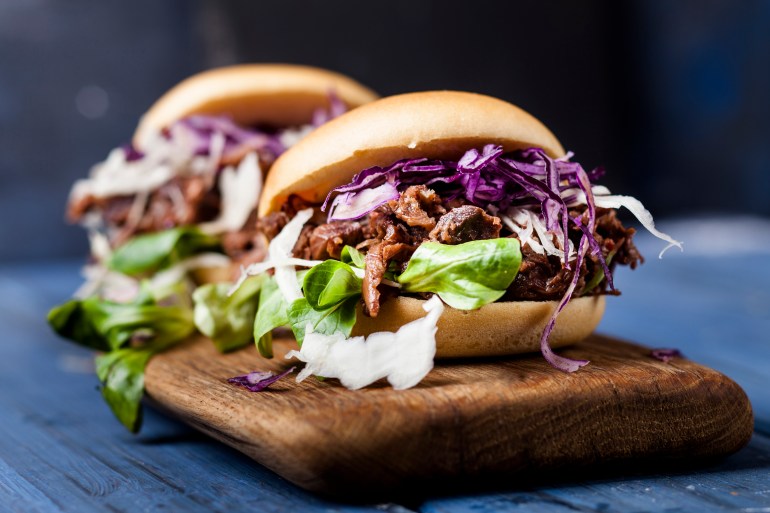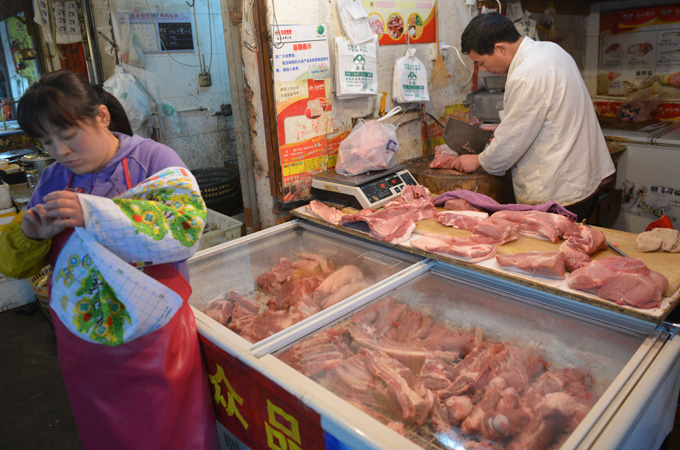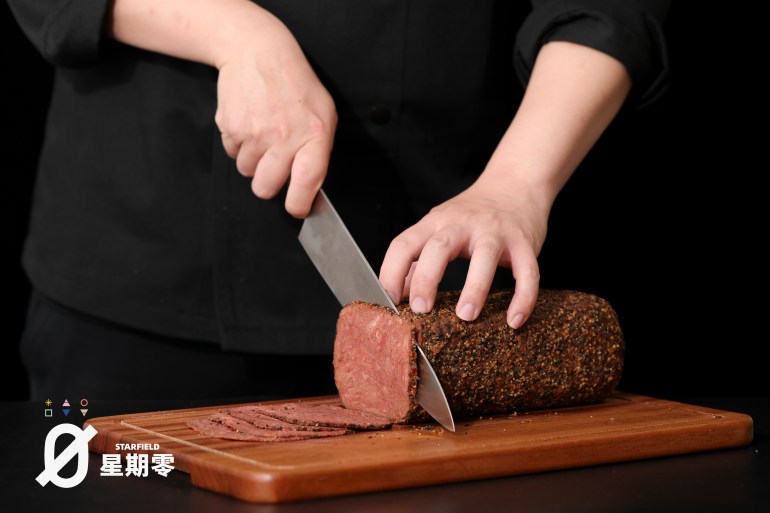In meat-loving China, mavericks see future in plant-based protein
There's a rising urge for food for alternate options to meat on this planet’s most populous nation.

Hong Kong, China – Kate Tu, a 31-year-old English instructor in southwest China’s Yunnan province, is used to getting unusual appears when she tells individuals she doesn’t eat meat.
“My household thinks I’m loopy for being vegetarian,” Tu, who lives within the metropolis of Dali, instructed Al Jazeera. “They don’t perceive. They'll’t perceive. They'll by no means perceive this life-style.”
For Tu’s family and friends, consuming meat daily is taken into account a obligatory a part of a nutritious diet.
“They suppose I’m malnourished and may eat pink meat as a result of it’s good for my well being,” stated Tu, who transitioned to a plant-based food regimen a few yr and a half in the past. “My sister not too long ago instructed me that in case you preserve consuming like this, in the end you’ll find yourself in hospital.”
“They’ve bought it unsuitable,” she added. “It’s their meat diets which can be unhealthy.”

China is by far the world’s largest shopper of meat, with residents anticipated to eat greater than 53 million tonnes of pork and 10 million tonnes of beef and veal in 2022, in keeping with the US Division of Agriculture.
Nonetheless, there's a rising urge for food for sustainable alternate options to meat on this planet’s most populous nation.
China’s vegan meals market is forecast to be price almost $12bn by 2023, up from just below $10bn in 2018, in keeping with a report by Euromonitor Worldwide. A 2020 examine by DuPont pinpointed China as one of many fastest-growing world markets for plant-based proteins, predicting demand for meat alternate options to extend by 200 % over the next 5 years, pushed by better curiosity in well being and sustainability.
Beijing seems to be warming as much as the market potential. In its newest improvement plan launched in January, the Ministry of Agriculture and Rural Affairs for the primary time included cultivated meats and different “future meals” as a part of its roadmap for meals safety. A discount in meat manufacturing may even be crucial for China to fulfill its greenhouse fuel emissions goal of turning into carbon impartial by 2060.
The United Nations has described meat manufacturing because the world’s most urgent downside, warning that an overreliance on the protein has introduced humanity to “the verge of disaster.”
The environmental affect of China’s consumption habits is a selected concern for the planet as a result of nation’s greater than 1.4 billion-strong inhabitants and quickly rising center class.
5-fold enhance in meat consumption
Amos Tai, an professional in environmental science on the Chinese language College of Hong Kong, stated the speedy uptick in China’s meat consumption might already be linked to environmental issues within the nation.
“In 30 years, there was a five-fold enhance in China’s per capita meat consumption, which has contributed to just about 20 % of the air air pollution within the nation,” Tai instructed Al Jazeera.
Tai stated Beijing understands that decreasing meat consumption shall be key to assembly its environmental objectives.
“There’s a local weather and setting motivation for the federal government, in addition to a realisation that this motion might alleviate the present strain on land, forest and water sources,” stated Tai.
Because the demand for various protein grows in China, firms are scrambling for a slice of the pie.
In January, Shenzhen-based startup Starfield Meals Science and Know-how raised $100m in China’s largest funding spherical for a vegan protein model thus far.
Since its launch in 2019, Starfield has launched merchandise in additional than 14,000 eating places throughout China, together with widespread chains Luckin Espresso and Dicos.
Albert Tseng, the co-founder of Dao Meals, Starfield’s first angel investor, sees Beijing’s nod to “future meals” in its agricultural plan as “a superb early indicator,” however cautions in opposition to overstating the federal government’s dedication.
“There was one line within the report that talked about future meals and various proteins. One line out of 42 pages,” Tseng stated. “I believe there's nonetheless a method to go.”
Tseng, who sees Starfield’s “superpower” as its capability to companion with established manufacturers that have already got relationships with customers, stated entrepreneurs within the “nascent” Chinese language market nonetheless have their work reduce out for them.
“We have now to show to the market and to policymakers that it is a route that may really fulfill the patron demand for protein, each when it comes to their willingness to purchase and their willingness to eat these items,” he stated.

Hong Kong-based dietitian Sally Poon instructed Al Jazeera “consuming meat is carefully linked with the rising affluence in China,” which can make shifting away a problem.
In November, a brief documentary introduced by celebrities Zhang Jingchu and Tao Hong that touted the advantages of a plant-based food regimen was lambasted by Chinese language netizens, who accused the makers of “blind worship” of Western values and disrespecting Chinese language habits.
Nevertheless, Poon stated perceptions are altering, particularly among the many youthful technology.
“I believe extra individuals realise that overconsumption of meat will not be good for one’s well being,” she stated. “Plant-based ideas are promoted extra typically within the media lately and this may have some affect on their meals selections.”
Tseng echoed the view that younger Chinese language are extra desirous to broaden their appetites.
“It’s encouraging that there’s a younger millennial inhabitants in China that could be very prepared to strive new meals, new issues,” he stated.
He stated Starfield plans to place the $100m funding injection into analysis and improvement, boosting manufacturing capability and increasing its advertising technique.
“We’re on the early stage of those proteins, we've to repeatedly get higher and higher when it comes to the vitamin, style and texture profiles,” he stated. “That is the problem. They have to be scrumptious, tasty, and cost-effective.”
For Kate Tu in Dali, because it stands, plant-based meat alternate options are an excessive amount of to fork out for.
Tu stated she is open to incorporating meat substitutes into her food regimen, however the comparatively excessive worth places them out of attain for her and hundreds of thousands of others in China.
“If the fee goes down and flavour improves, possibly extra Chinese language individuals will eat faux meat and alter to a extra vegetarian life-style,” Tu stated. “However I believe it's going to take generations.”
Đăng nhận xét for "In meat-loving China, mavericks see future in plant-based protein"